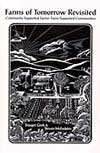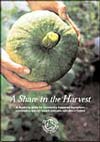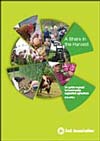
![]()
Search the Journey to Forever website – click HERE
|
Journey to Forever: Make a donation |
Navigation
| Small farms library | |
| City farms | |
| Organic gardening | |
| Composting | |
| Small farms | |
| Introduction Sustainable farming Small farms fit References |
|
| Small farm resources | |
| Back to the land | |
| Small farms | |
| Organics | |
| Soil management | |
| Sustainable farming | |
| General resources | |
| Food storage and preservation | |
| Useful databases | |
| Community-supported farms | |
| Farming with trees | |
| Agroforestry Bamboo Resources |
|
| Farming with animals | |
| Introduction Livestock resources Cattle Sheep General Draft animals |
|
| Pasture | |
| Introduction Pasture resources Silage |
|
| Pigs for small farms | |
| Why pigs have snouts Raising pigs on soil in Japan Lady Eve's pigs Pigs on pasture Pig resources |
|
| Poultry for small farms | |
| Muscovy ducks Khaki Campbell ducks Chickens Geese Rabbits Guineafowl General tips High-protein poultry feed from thin air Poultry as unpaid labour They're not pets Doing it |
|
| Poultry resources | |
| Aquaculture for small farms | |
| Introduction Aquaculture resources |
|
| Composting for small farms | |
| Foundation On-farm composting resources |
|
| Controlling weeds and pests | |
| Weeds Weed control resources Insect pests No pesticides Insect control resources |
|
Contact usTo Keith Addison Handmade Projects |
Community-supported farms
Community Supported Agriculture (CSA) started in Europe and spread to the US in the mid-1980s -- there are now more than 1,000 CSA farms in the US and Canada, serving more than 100,000 families.
But most Americans still have no idea where their food comes from: in fact up to 90% of it comes from beyond the state borders, travelling an average of 1,300 miles before it reaches their dinner tables. The same applies to most city dwellers, especially in the industrialized countries.

(CSA North America)
In the US as elsewhere more people want to know more about the food they eat, and this is opening up new opportunities for CSA, and a new type of market for small farmers, especially those using sustainable systems, for these are consumers who care.
Consumers pay in advance, sharing the farmers' risks, and often the labour on the farm, and sharing the benefits: top-quality, fresh food at below-retail prices, and a fresh connection with the land -- which most value more than the food-price savings.
Member groups range from a few dozen to hundreds, paying membership fees between $200 and $500 for 5-10 pounds of food per week. Most of the farms are small, averaging about 35 acres.
A major plus of the CSA arrangement is that it returns farming and food to the community-level where it belongs. It's an infinitely variable arrangement that can be worked out and adjusted through practise until it suits everyone concerned.
No CSA group in your area? Why not start one?
Resources
 "Farms of Tomorrow Revisited: Community Supported Farms, Farm Supported Communities" by Trauger M. Groh and Steven McFadden, 1997, Biodynamic Farming and Gardening Association, ISBN 0-938250-13-2
"Farms of Tomorrow Revisited: Community Supported Farms, Farm Supported Communities" by Trauger M. Groh and Steven McFadden, 1997, Biodynamic Farming and Gardening Association, ISBN 0-938250-13-2
"Farming is everyone's responsibility, and has likewise to be accessible for everyone," says Trauger Groh, who ran the original Community Supported Agriculture (CSA) farm in Germany and started the first CSA in the US. Most people have never met a farmer or seen a potato in the ground. Explains why society needs smaller farms that care for the land and their communities and produce a bounty of healthy produce for the consumer. Ten examples of CSA farms with first-hand information and advice from the farmers themselves. A must for anybody interested in the CSA movement or farmers of starting their own CSA program. Helpful appendices on getting started, acquiring land, sample budgets, and typical CSA shares are included. From the Biodynamic Farming and Gardening Association:
http://www.biodynamics.com/catalog/farms-of-tomorrow-revisted-groh-mcfadden
"Community Supported Agriculture -- Business Management Series", Appropriate Technology Transfer for Rural Areas (ATTRA). Community Supported Agriculture (CSA) is both a marketing technique and a way of life. CSAs across the country are helping farmers make ends meet. This publication discusses the basics of CSAs, how they work, how to get started, how to retain shareholders. Reading list, resources, organizations, publications, websites.
http://www.attra.org/attra-pub/csa.html
 Community Supported Agriculture (CSA). This US information resource is a cooperative effort between the Cooperative State Research Education and Extension Service (CSREES) and the National Agricultural Library (NAL) of the US Department of Agriculture (USDA). General information, state-by-state listing of CSA farms, CSA resources for farmers, sustainable agriculture resources, nutrition and health, organic recipes, web and other resources, books and recent articles and more.
Community Supported Agriculture (CSA). This US information resource is a cooperative effort between the Cooperative State Research Education and Extension Service (CSREES) and the National Agricultural Library (NAL) of the US Department of Agriculture (USDA). General information, state-by-state listing of CSA farms, CSA resources for farmers, sustainable agriculture resources, nutrition and health, organic recipes, web and other resources, books and recent articles and more.
http://www.nal.usda.gov/afsic/csa/
The US Biodynamic Farming and Gardening Association provides a list of all CSAs in the US and Canada. Also has brochure: "Introduction to Community Supported Farms and Farm Supported Communities".
http://www.biodynamics.com/csa.html
The Community Farm Newsletter -- "A Voice For Community Supported Agriculture": quarterly newsletter for people interested in community supported agriculture ("community shared agriculture" in Canada). A forum for CSA growers, farm members and prospective CSA farmers to explore ideas, techniques, organic farming, small farm preservation, sustainable agriculture. Publishers are CSA farmers in Northern Michigan. Back issues from 2004 to 2008, free download:
http://csafarms.org/csafarms3952609.asp
CSA-L@prairienet.org email list on Community Supported Agriculture:
http://www.prairienet.org/pcsa/CSA-L/
"Creating a Market -- Getting started in Community Supported Agriculture" by Sarah Milstein, Mother Earth News, Feb/March 1999. Clear view of the CSA option, focus on one farm family's experience, good advice on how to proceed, do's and don'ts. Start small and grow slowly -- plan ahead. And the rewards: "Four or five members are coming up from the city tomorrow to plant garlic with us. It's amazing to me that people are going to take the time and expense to help out because they care about next year. That level of commitment has been very reassuring for us. It makes us step back sometimes and appreciate our farm and what we do."
http://www.motherearthnews.com/Sustainable-Farming/1999-02-01/Creating-a-Market.aspx
 "A Share in the Harvest -- A feasibility study for community supported agriculture", the UK Soil Association, 2001 -- This study looks at how community supported agriculture (CSA) can help in the development of local and sustainable food economies. Investigates community involvement in farming around the globe and in a number of established and planned CSA initiatives in the UK. Eleven case studies included. 44-page report, 655kb Acrobat file:
"A Share in the Harvest -- A feasibility study for community supported agriculture", the UK Soil Association, 2001 -- This study looks at how community supported agriculture (CSA) can help in the development of local and sustainable food economies. Investigates community involvement in farming around the globe and in a number of established and planned CSA initiatives in the UK. Eleven case studies included. 44-page report, 655kb Acrobat file:
http://www.soilassociation.org/LinkClick.aspx?fileticket=rq9ulg7
UAvM%3D&tabid=387
 "A Share in the Harvest -- an action manual for community supported agriculture", Soil Association, 2001 -- A practical guide to support farmers/growers, consumers and activists who wish to develop community supported agriculture (CSA) initiatives. Uses experiences from CSA farms in the UK and overseas and includes information on CSA models, membership, finance and legal issues, land and share issues, grant advice and useful publications. 1.4Mb pdf.
"A Share in the Harvest -- an action manual for community supported agriculture", Soil Association, 2001 -- A practical guide to support farmers/growers, consumers and activists who wish to develop community supported agriculture (CSA) initiatives. Uses experiences from CSA farms in the UK and overseas and includes information on CSA models, membership, finance and legal issues, land and share issues, grant advice and useful publications. 1.4Mb pdf.
http://www.soilassociation.org/LinkClick.aspx?fileticket=
gi5uOJ9swiI%3D&tabid=204
National Association of Farmers Markets, UK -- Farmers' Markets are for all kinds of food producers and offer a low-cost entry point for many farmers who have not 'sold direct' before. Farmers' markets are the embodiment of the availability of home grown foods. They are the British farming industry's most high-profile shop-window. Market guidelines, starting a market, find local markets, and more.
http://www.farmersmarkets.net/
Small farms
Small farm resources
Community-supported farms
Farming with trees
Farming with animals
Pasture
Pigs for small farms
Poultry for small farms
Aquaculture for small farms
Composting for small farms
Controlling weeds and pests
Small farms library
City farms
Organic gardening
Building a square foot garden
Plant spacing guides
No ground? Use containers
When to sow what
Seeds
Garden pond
Gardening resources
Composting
Making compost
Composting resources
Composting indoors
Vermicomposting
Humanure
Composting for small farms